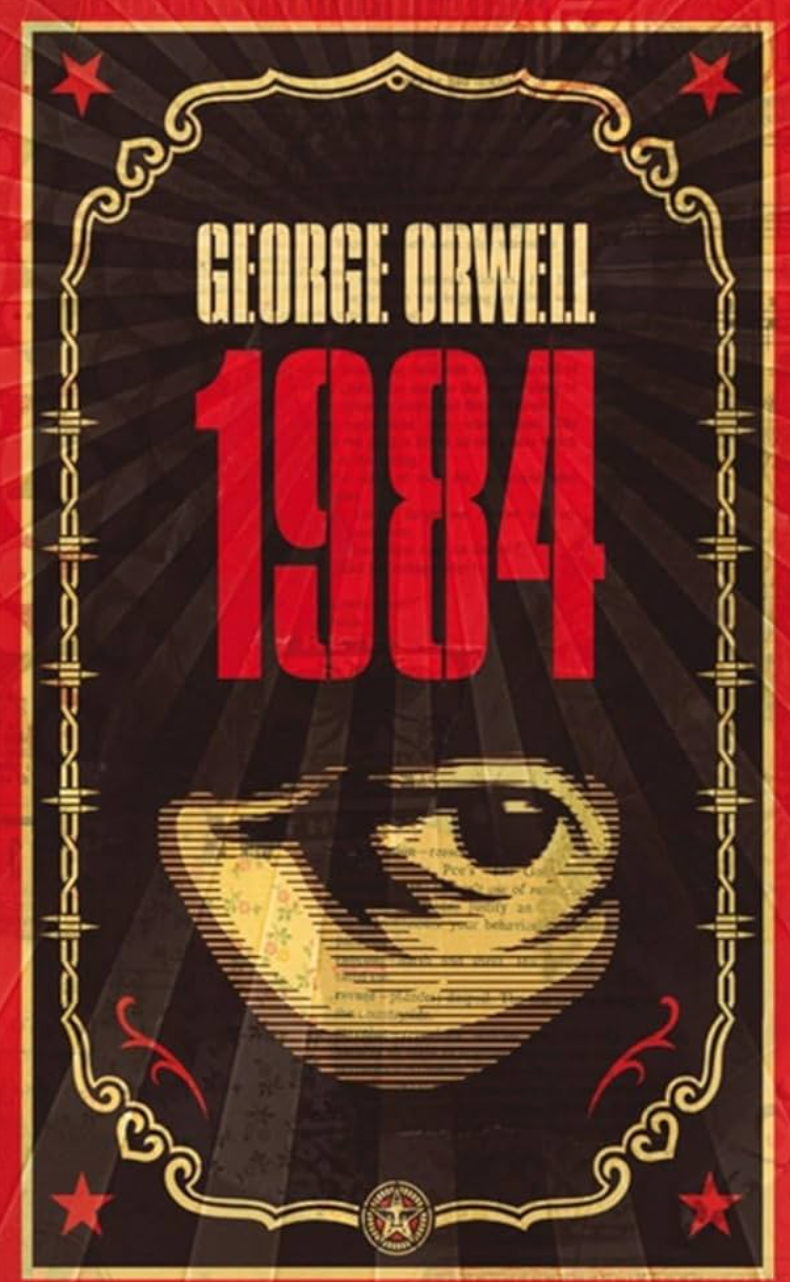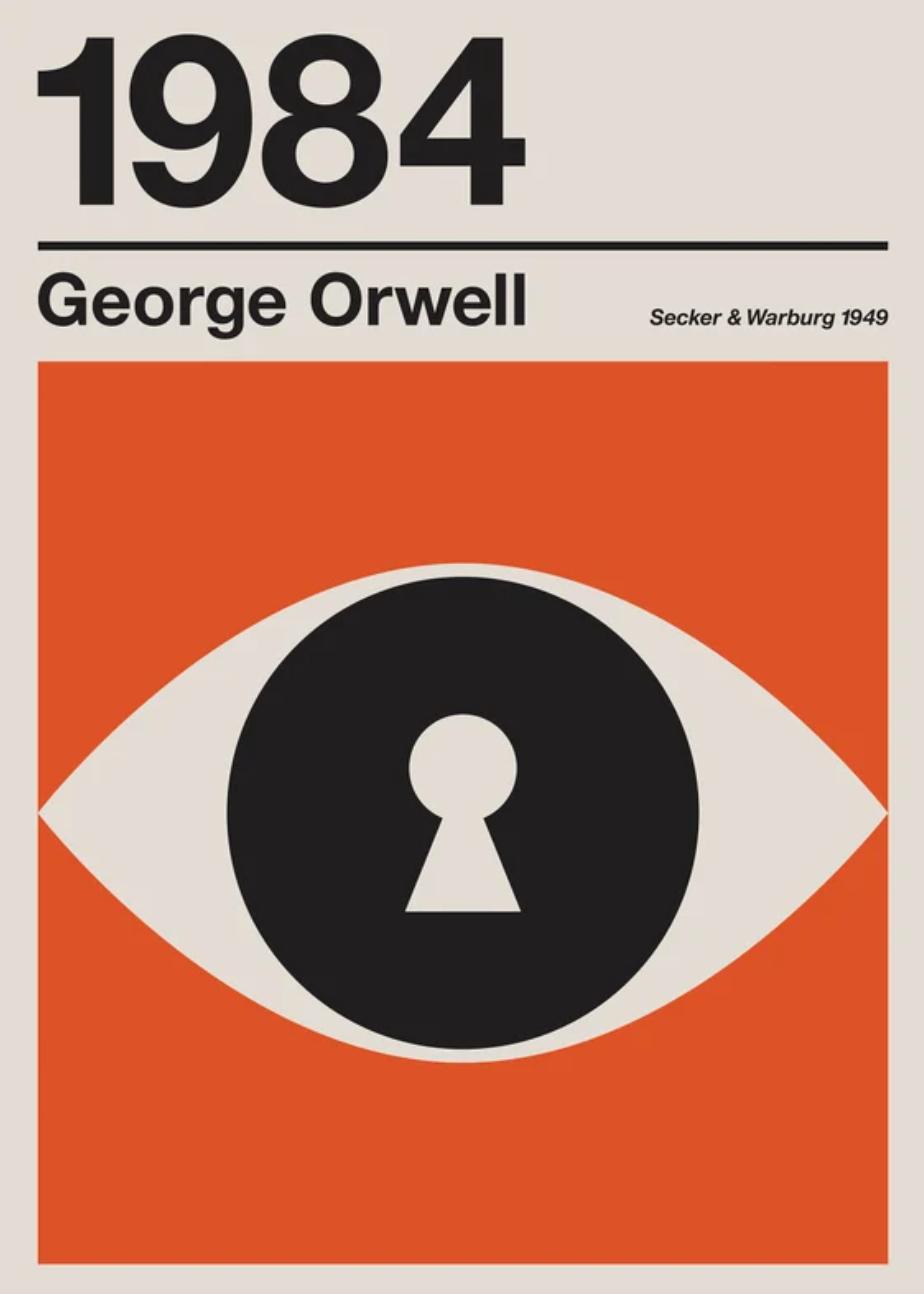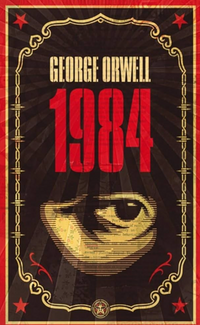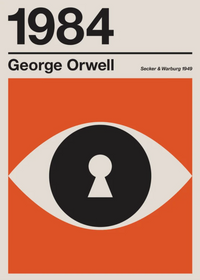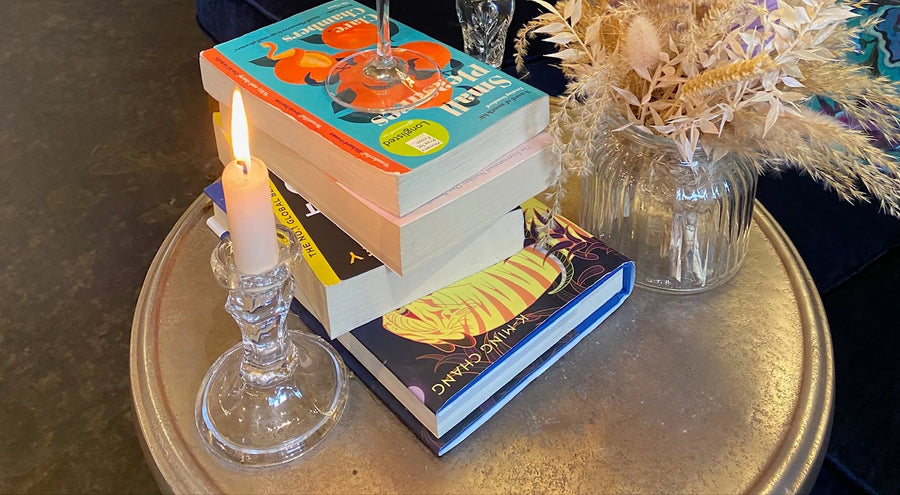1984
A dystopian novel and cautionary tale by English writer George Orwell. A masterpiece of rebellion and imprisonment where war is peace freedom is slavery and Big Brother is watching.
Written 75 years ago, 1984 was George Orwell's chilling prophecy about the future. And while 1984 has come and gone, his dystopian vision of a government that will do anything to control the narrative is timelier than ever...
Type: Novel
Themes: Dystopia, surveillance, and political control.
Tone: Chilling and timeless.
Your ticket includes:
- Welcome bellini on arrival
- 10% off purchases any the evening
About the book
Thought Police, Big Brother, Orwellian - these words have entered our vocabulary because of George Orwell's classic dystopian novel 1984. The story of one man's Nightmare Odyssey as he pursues a forbidden love affair through a world ruled by warring states and a power structure that controls not only information but also individual thought and memory 1984 is a prophetic haunting tale More relevant than ever before 1984 exposes the worst crimes imaginable the destruction of truth freedom and individuality. With a foreword by Thomas Pynchon.
In this novel, continuously popular since its first publication, readers can explore the dark and extraordinary world he brought so fully to life.
The principal characters who lead us through that world are ordinary human beings like ourselves: Winston Smith and Julia, whose falling in love is also an act of rebellion against the Party.
Opposing them are the massed powers of the state, which watches its citizens on all sides through technology now only too familiar to us.
No-one is free from surveillance; the past is constantly altered, so that there is no truth except the most recent version; and Big Brother, both loved and feared, controls all.
Even the simple act of keeping a diary – as Winston does – is punishable by death.
About the author
George Orwell (pseudonym for Eric Blair [1903-50]) was born in Bengal and educated at Eton; after service with the Indian Imperial Police in Burma, he returned to Europe to earn his living penning novels and essays. He was essentially a political writer who focused his attention on his own times, a man of intense feelings and intense hates. An opponent of totalitarianism, he served in the Loyalist forces in the Spanish Civil War. Besides his classic Animal Farm, his works include a novel based on his experiences as a colonial policeman, Burmese Days, two firsthand studies of poverty, Down and Out in Paris and London and The Road to Wigan Pier, an account of his experiences in the Spanish Civil War, Homage to Catalonia; and the extraordinary novel of political prophecy whose title became part of our language, 1984.


